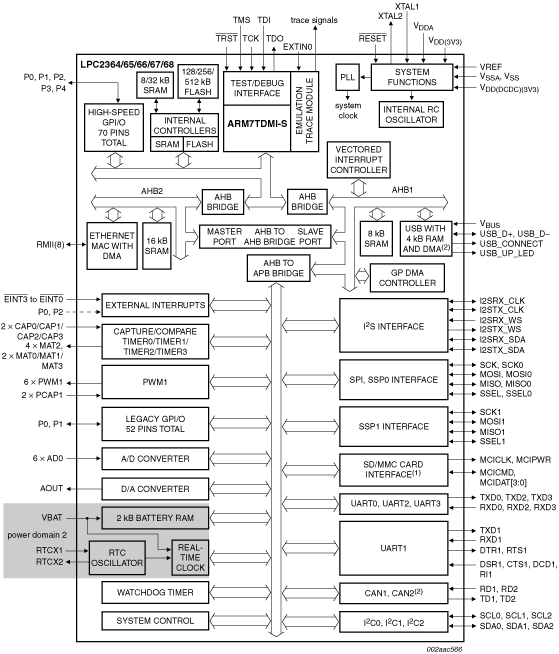The LPC2368FET100 is a Arm7 microcontroller for embedded applications featuring a high level of integration and low power consumption at frequencies of 72 MHz. Features include up to 256 kB of flash memory, up to 58 kB of RAM, Ethernet MAC, USB Device/Host/OTG, DMA controller, SD/MMC, 4 UARTs, 2 CAN channels, 3 SSP/SPI, 3 I2C, I2S, 8-channel 10-bit ADC, 10-bit DAC, 2 PWM, 4 general purpose timers, low power Real-Time Clock with separate battery supply, and up to 70 general purpose I/O pins. The LPC23xx are pin-compatible to the LPC176x Cortex-M3 series.

